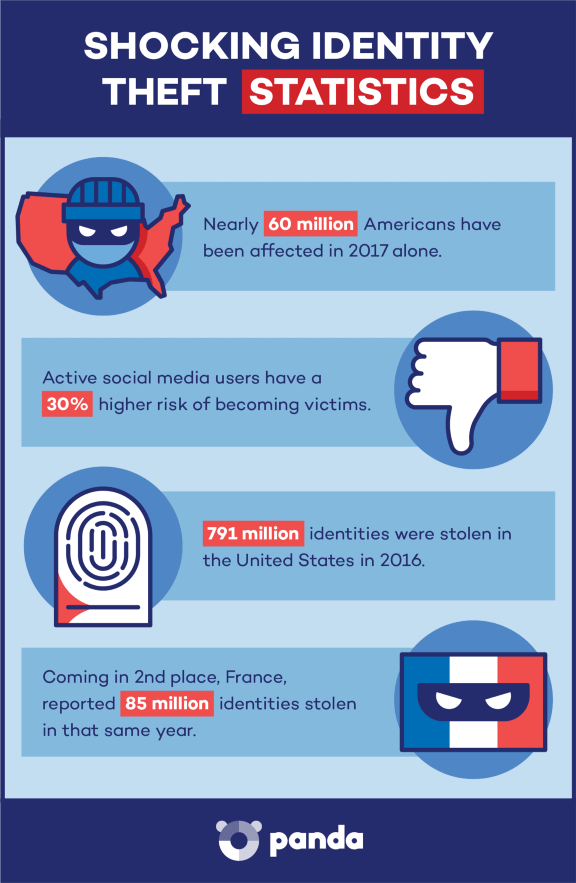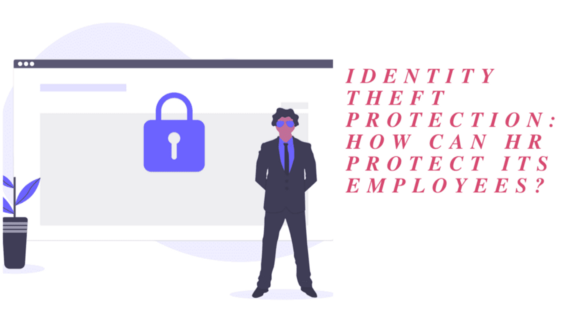Criminals are engaging in complex identity theft schemes that are leaving a number of victims in their wake. See what your HR department can do to protect its employees.
We lock our phones and homes. We have alarm systems in our cars. Video cameras at our offices. What about protecting the identity of our employees?
In recent years, America’s corporations have been dealing with major data security breaches. Although these actions are not always malicious, they can cause a lot of damage to the company. From leaking confidential information to arming a competitor with private data, these attacks can make the company lose its competitive advantage and employees their identity.
Identity theft resulting from stolen corporate data is breaking news. The Federal Trade Commission (FTC) estimates that nearly 9 million Americans have had their identities stolen each year. Human Resource departments must find ways to thwart an identity theft attack and reduce the department’s exposure. At the end of the day, it’s their efficiency to protect the department that has a key role in preventing employee identity theft.
Identity Theft Protection
Between 2010 and 2015, the number of identity thefts doubled. According to the FBI, the number of identity theft victims and total losses is likely much higher than publicly-reported statistics.
In order to safeguard your employees from this fast-growing crime, HR professionals need to take improve their data protection through
To safeguard against these evolving identity theft threats, the HR department must provide/advice:
- Employee education and training. In order to minimize the risk of identity theft, educating the employees is crucial. Each employee needs to be aware of the processes and controls the company has in place to prevent potential breaches. Also, the HR department needs to provide employees with the required tools and resources to help them protect their personal information.
- Identity theft protection policies and procedures. If the HR department develops effective identity theft protection policies and procedures, it can prevent sensitive information theft from happening to the company. These policies and procedures must protect the most valuable and confidential employees’ information from being stolen by unauthorized parties. The HR department needs to regularly review these policies to ensure that all necessary policy changes and additions have been addressed.
- A high-quality IT security infrastructure. Companies need to purchase and deploy superior hardware into the system to prevent data breaches. What’s more, they need to incorporate suitable hardware maintenance strategy into the system as well.
- A plan of action. Each company needs to have a solid plan of action in place to limit the damage done by an attack when preventative measures fail. Creating a response plan requires time, focus, research, and resources.

What to Do if an Identity Theft Occurs
When a breach occurs, there are several things you should do within 48 hours to manage the situation as best as you can.
Stop Everything
You should take all the affected devices offline. Don’t shut them down or make any changes to avoid erasing clues or contaminate evidence. The goal is to stop any ongoing activity by limiting communication to and from the affected systems.
Determine the Damage
The next step is to determine the damage. What information was breached, what systems were compromised, which accounts have been used? In order to solve the breach, you first need to determine its scope.
There are different types of data that can be exposed in a breach, including:
- Name
- Date of birth
- Social Security number
- Email address
- Mailing and/or physical address
- Telephone number
- Debit and credit card information
- Clinical information
- Claims information
Determine the Cause
It’s not enough to determine the damage of the breach. In order to manage the data breach effectively, you need to determine the root cause. You need to establish whether it was due to the system’s vulnerability, an employee giving away their password, or someone plugging an unauthorized laptop into the company network.
Change Passwords and Online Logins
Changing all passwords and online logins is crucial when dealing with identity theft. If the breach is ongoing, this will ensure its cessation. This step needs to be applied to all employees’ accounts in order to limit the reach of the hackers’ arms.
Contact Financial Institutions
After identity theft, you should immediately contact financial institutions. They need to remove all fraudulent charges and cancel any compromised accounts.
Contact Credit Reporting Agencies
The HR department needs to contact credit reporting agencies to inform them of the identity theft. It needs to provide an alternative account or payment method to the employees if they’re enrolled in a direct deposit. The credit reporting agencies should immediately suspend any transactions to a compromised account.
Offer Access to an Employee Assistance Program
Having your identity stolen can have an emotional impact. For this reason, it’s essential for the HR department to offer access to an employee assistance program that can help employees with their personal problems. These programs can help the employee and the company to recover with minimal damage.
Identity Theft Insurance
Many companies are adding identity theft insurance to the benefits package. This type of insurance allows employees to have identity theft services to assist them if their personal information is stolen. It reimburses victims for money spent on reclaiming their financial identities and repairing their credit reports.
One of the major reasons to consider including this benefit in your company benefits package is employee satisfaction and retention. As there is an ongoing war for the best talent, companies should offer their employees more than just health and retirement packages. Workers, especially millennials, value various other things besides money and will not sacrifice their quality of life for a company that doesn’t meet their needs.
Take these precautions and apply these strategies to help your company keep its employees’ private information safe. This will result in higher employee satisfaction in the workplace and a competitive advantage for your company. It’s a win-win situation for both sides.
How does your HR department face these unique challenges? Tell us in the comment section below.









